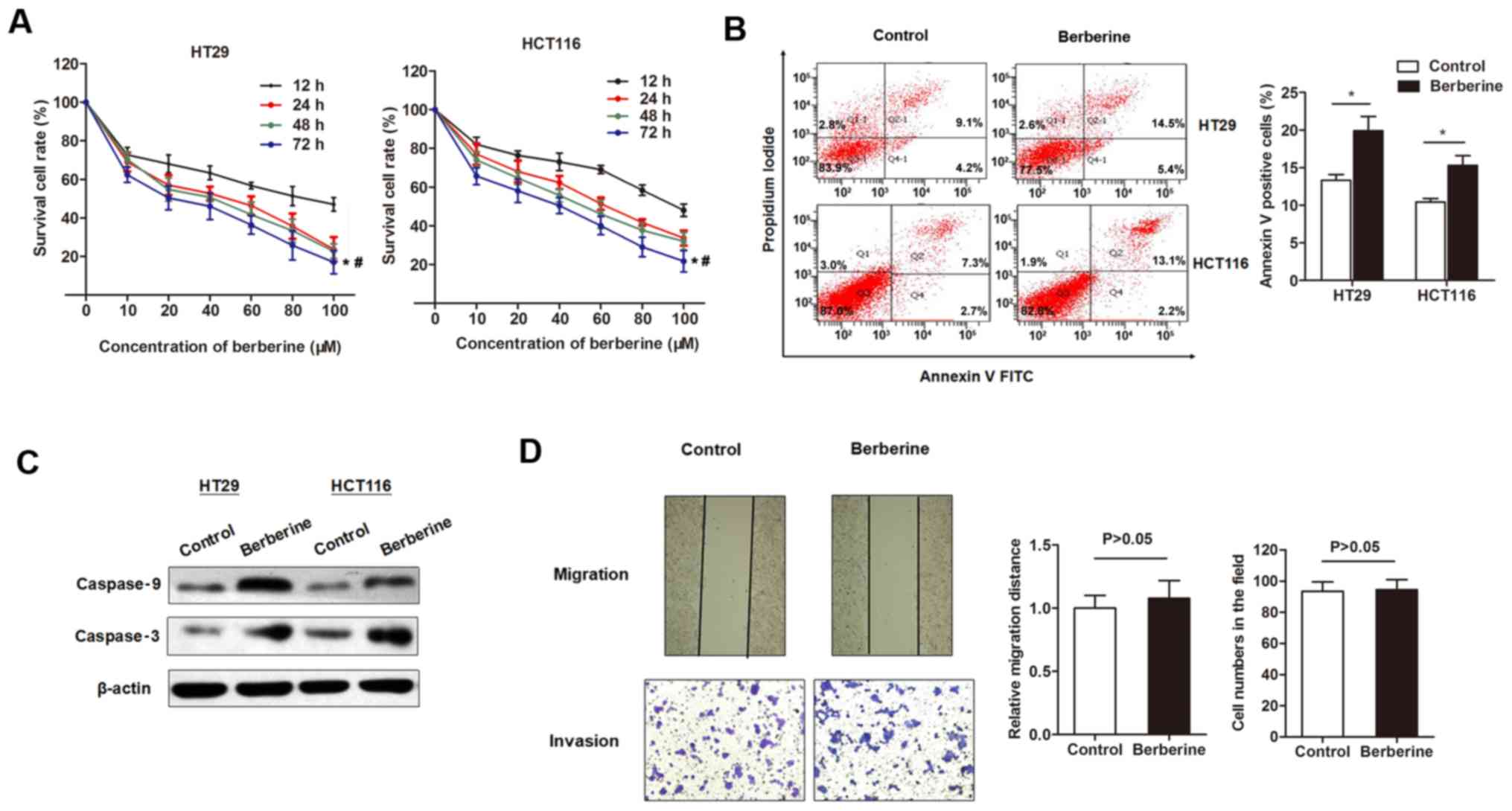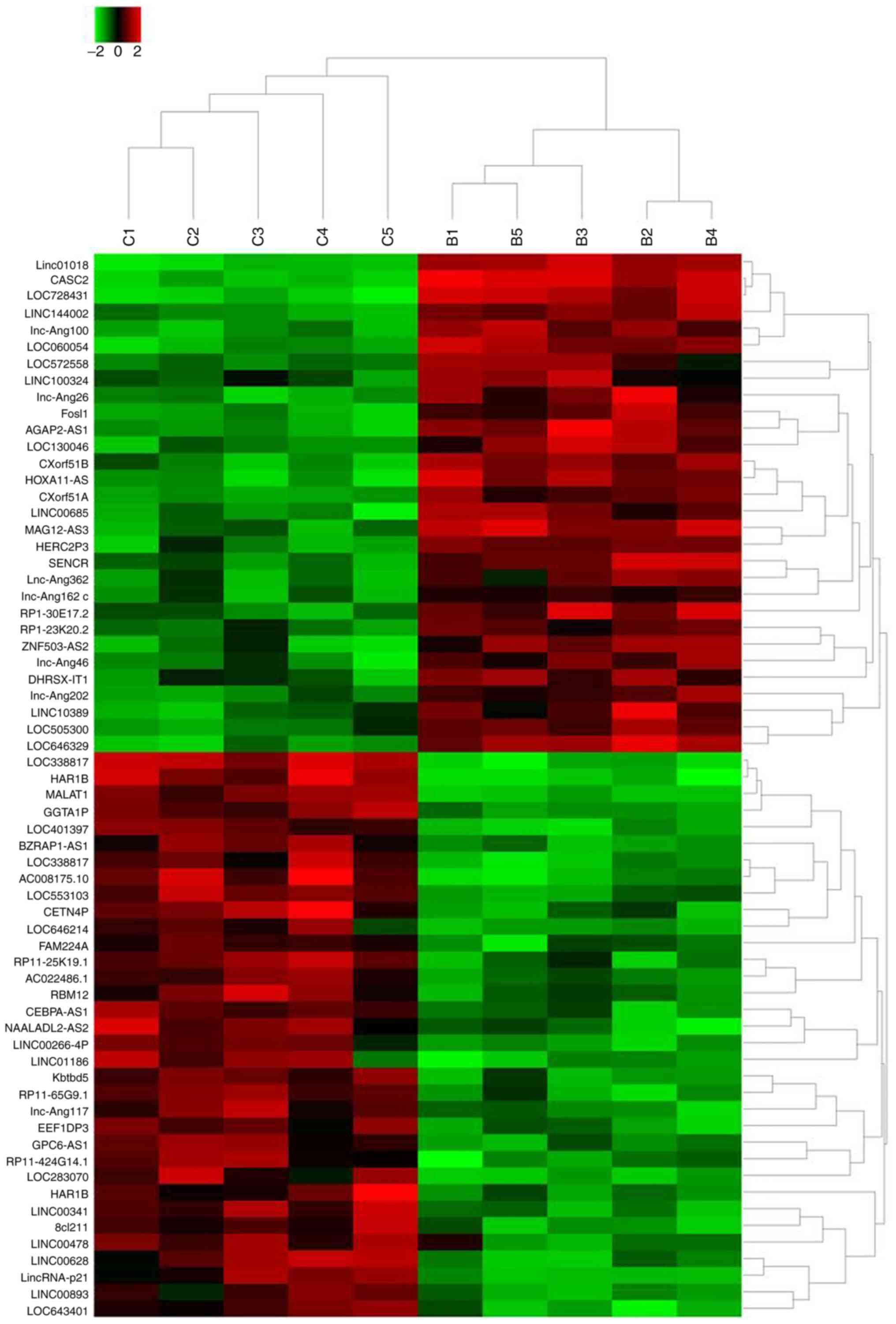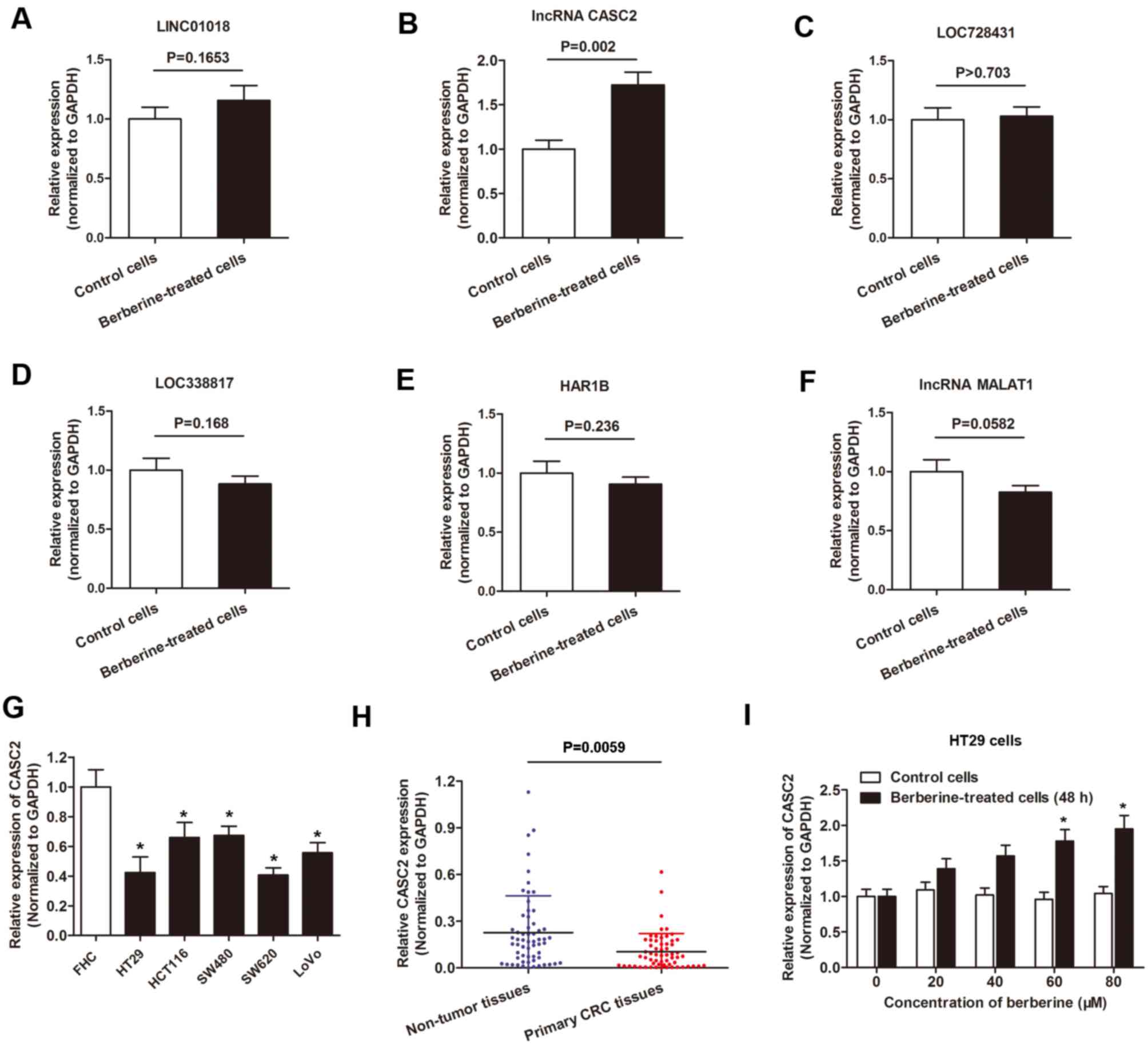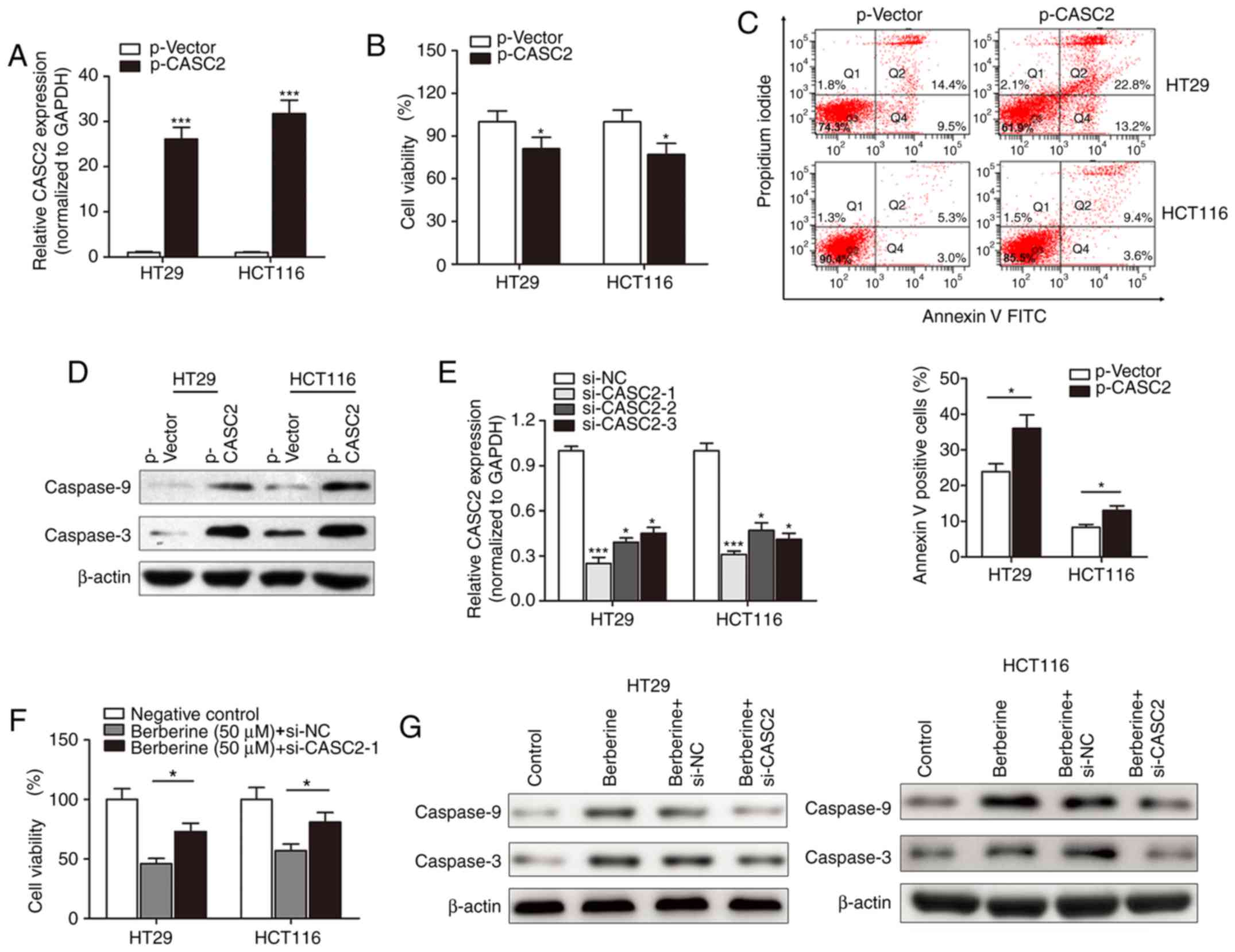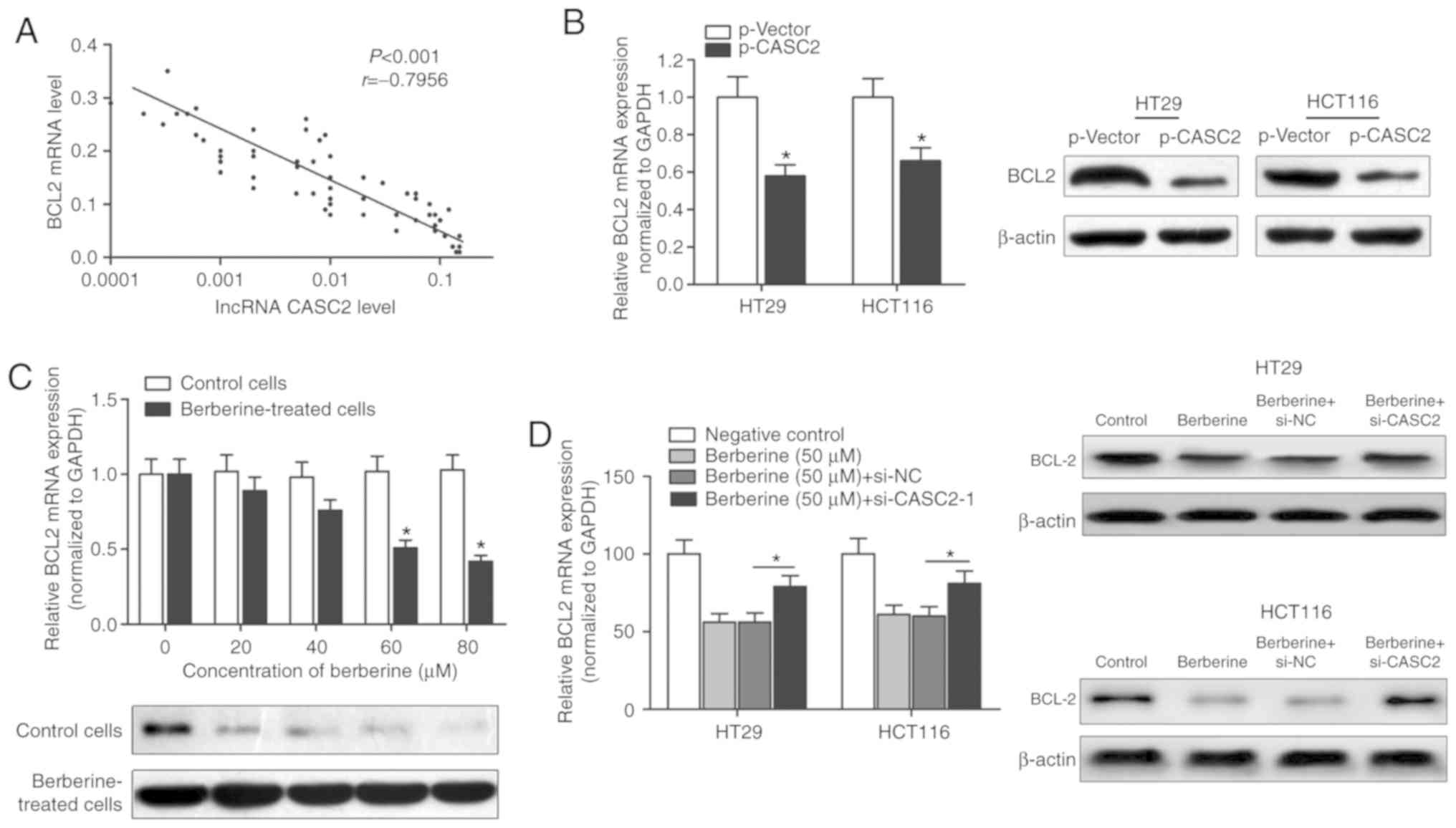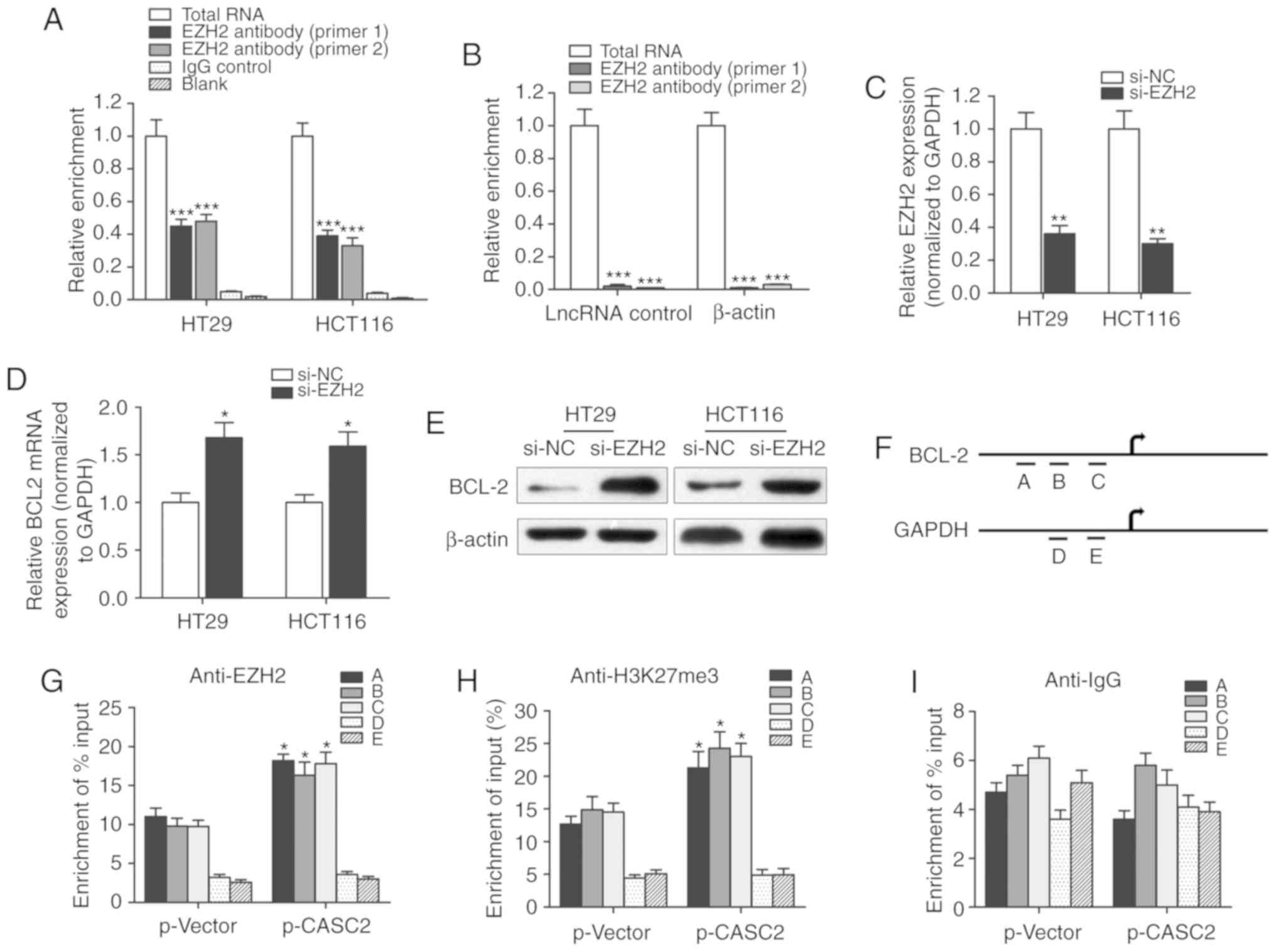|
1
|
Engholm G, Kejs AM, Brewster DH, Gaard M,
Holmberg L, Hartley R, Iddenden R, Møller H, Sankila R, Thomson CS
and Storm HH: Colorectal cancer survival in the Nordic countries
and the United Kingdom: Excess mortality risk analysis of 5 year
relative period survival in the period 1999 to 2000. Int J Cancer.
121:1115–1122. 2007. View Article : Google Scholar : PubMed/NCBI
|
|
2
|
Jansen MC, Bueno-de-Mesquita HB, Buzina R,
Fidanza F, Menotti A, Blackburn H, Nissinen AM, Kok FJ and Kromhout
D: Dietary fiber and plant foods in relation to colorectal cancer
mortality: The Seven Countries Study. Int J Cancer. 81:174–179.
1999. View Article : Google Scholar : PubMed/NCBI
|
|
3
|
Tomida C, Aibara K, Yamagishi N, Yano C,
Nagano H, Abe T, Ohno A, Hirasaka K, Nikawa T and Teshima-Kondo S:
The malignant progression effects of regorafenib in human colon
cancer cells. J Med Invest. 62:195–198. 2015. View Article : Google Scholar : PubMed/NCBI
|
|
4
|
Goldberg RM, Sargent DJ, Morton RF, Fuchs
CS, Ramanathan RK, Williamson SK, Findlay BP, Pitot HC and Alberts
SR: A randomized controlled trial of fluorouracil plus leucovorin,
irinotecan, and oxaliplatin combinations in patients with
previously untreated metastatic colorectal cancer. J Clin Oncol.
22:23–30. 2004. View Article : Google Scholar : PubMed/NCBI
|
|
5
|
Hiraki M, Nishimura J, Takahashi H, Wu X,
Takahashi Y, Miyo M, Nishida N, Uemura M, Hata T, Takemasa I, et
al: Concurrent targeting of KRAS and AKT by miR-4689 Is a novel
treatment against mutant KRAS colorectal cancer. Mol Ther Nucleic
Acids. 4:e2312015. View Article : Google Scholar : PubMed/NCBI
|
|
6
|
Wasserman I, Lee LH, Ogino S, Marco MR, Wu
C, Chen X, Datta J, Sadot E, Szeglin B, Guillem JG, et al: smad4
loss in colorectal cancer patients correlates with recurrence, loss
of immune infiltrate, and chemoresistance. Clin Cancer Res.
25:1948–1956. 2019. View Article : Google Scholar : PubMed/NCBI
|
|
7
|
Li D, Zhang Y, Liu K, Zhao Y, Xu B, Xu L,
Tan L, Tian Y, Li C, Zhang W, et al: Berberine inhibits
colitis-associated tumorigenesis via suppressing inflammatory
responses and the consequent EGFR signaling-involved tumor cell
growth. Lab Invest. 97:1343–1353. 2017. View Article : Google Scholar : PubMed/NCBI
|
|
8
|
Li G, Zhao M, Qiu F, Sun Y and Zhao L:
Pharmacokinetic interactions and tolerability of berberine chloride
with simvastatin and fenofibrate: An open-label, randomized,
parallel study in healthy Chinese subjects. Drug Des Devel Ther.
13:129–139. 2019. View Article : Google Scholar : PubMed/NCBI
|
|
9
|
Choi MS, Yuk DY, Oh JH, Jung HY, Han SB,
Moon DC and Hong JT: Berberine inhibits human neuroblastoma cell
growth through induction of p53-dependent apoptosis. Anticancer
Res. 28:3777–3784. 2008.PubMed/NCBI
|
|
10
|
Wang N, Feng Y, Zhu M, Tsang CM, Man K,
Tong Y and Tsao SW: Berberine induces autophagic cell death and
mitochondrial apoptosis in liver cancer cells: The cellular
mechanism. J Cell Biochem. 111:1426–1436. 2010. View Article : Google Scholar : PubMed/NCBI
|
|
11
|
Huang Y, Wang K, Gu C, Yu G, Zhao D, Mai
W, Zhong Y, Liu S, Nie Y and Yang H: Berberine, a natural plant
alkaloid, synergistically sensitizes human liver cancer cells to
sorafenib. Oncol Rep. 40:1525–1532. 2018.PubMed/NCBI
|
|
12
|
Li J, Liu F, Jiang S, Liu J, Chen X, Zhang
S and Zhao H: Berberine hydrochloride inhibits cell proliferation
and promotes apoptosis of non-small cell lung cancer via the
suppression of the MMP2 and Bcl-2/Bax signaling pathways. Oncol
Lett. 15:7409–7414. 2018.PubMed/NCBI
|
|
13
|
Wu K, Yang Q, Mu Y, Zhou L, Liu Y, Zhou Q
and He B: Berberine inhibits the proliferation of colon cancer
cells by inactivating Wnt/β-catenin signaling. Int J Oncol.
41:292–298. 2012.PubMed/NCBI
|
|
14
|
Liu X, Ji Q, Ye N, Sui H, Zhou L, Zhu H,
Fan Z, Cai J and Li Q: Berberine inhibits invasion and metastasis
of colorectal cancer cells via COX-2/PGE2 mediated JAK2/STAT3
signaling pathway. PLoS One. 10:e01234782015. View Article : Google Scholar : PubMed/NCBI
|
|
15
|
Tuck AC and Tollervey D: A
transcriptome-wide atlas of RNP composition reveals diverse classes
of mRNAs and lncRNAs. Cell. 154:996–1009. 2013. View Article : Google Scholar : PubMed/NCBI
|
|
16
|
Gong C and Maquat LE: lncRNAs
transactivate STAU1-mediated mRNA decay by duplexing with 3′UTRs
via Alu elements. Nature. 470:284–288. 2011. View Article : Google Scholar : PubMed/NCBI
|
|
17
|
Engreitz JM, Pandya-Jones A, McDonel P,
Shishkin A, Sirokman K, Surka C, Kadri S, Xing J, Goren A, Lander
ES, et al: The Xist lncRNA exploits three-dimensional genome
architecture to spread across the X chromosome. Science.
341:12379732013. View Article : Google Scholar : PubMed/NCBI
|
|
18
|
Gayen S, Maclary E, Buttigieg E, Hinten M
and Kalantry S: A primary role for the Tsix lncRNA in maintaining
random X-chromosome inactivation. Cell Rep. 11:1251–1265. 2015.
View Article : Google Scholar : PubMed/NCBI
|
|
19
|
Bai WL, Zhao SJ, Wang ZY, Zhu YB, Dang YL,
Cong YY, Xue HL, Wang W, Deng L, Guo D, et al: lncRNAs in secondary
hair follicle of cashmere goat: Identification, expression, and
their regulatory network in Wnt signaling pathway. Anim Biotechnol.
29:199–211. 2018. View Article : Google Scholar : PubMed/NCBI
|
|
20
|
Mullin NK, Mallipeddi NV, Hamburg-Shields
E, Ibarra B, Khalil AM and Atit RP: Wnt/β-catenin signaling pathway
regulates specific lncRNAs that impact dermal fibroblasts and skin
fibrosis. Front Genet. 8:1832017. View Article : Google Scholar : PubMed/NCBI
|
|
21
|
Bester AC, Lee JD, Chavez A, Lee YR,
Nachmani D, Vora S, Victor J, Sauvageau M, Monteleone E, Rinn JL,
et al: An integrated genome-wide CRISPRa approach to functionalize
lncRNAs in drug resistance. Cell. 173:649–664 e20. 2018. View Article : Google Scholar : PubMed/NCBI
|
|
22
|
Zhu B, Xu M, Shi H, Gao X and Liang P:
Genome-wide identification of lncRNAs associated with
chlorantraniliprole resistance in diamondback moth Plutella
xylostella (L.). BMC Genomics. 18:3802017. View Article : Google Scholar : PubMed/NCBI
|
|
23
|
Livak KJ and Schmittgen TD: Analysis of
relative gene expression data using real-time quantitative PCR and
the 2(-Delta Delta C(T)) method. Methods. 25:402–408. 2001.
View Article : Google Scholar : PubMed/NCBI
|
|
24
|
Zhang L, Geng Z, Meng X, Meng F and Wang
L: Screening for key lncRNAs in the progression of gallbladder
cancer using bioinformatics analyses. Mol Med Rep. 17:6449–6455.
2018.PubMed/NCBI
|
|
25
|
Li P, Xue WJ, Feng Y and Mao QS: Long
non-coding RNA CASC2 suppresses the proliferation of gastric cancer
cells by regulating the MAPK signaling pathway. Am J Transl Res.
8:3522–3529. 2016.PubMed/NCBI
|
|
26
|
Yu Y, Liang S, Zhou Y, Li S, Li Y and Liao
W: HNF1A/CASC2 regulates pancreatic cancer cell proliferation
through PTEN/Akt signaling. J Cell Biochem. 120:2816–2827. 2019.
View Article : Google Scholar : PubMed/NCBI
|
|
27
|
Durai R, Yang SY, Sales KM, Seifalian AM,
Goldspink G and Winslet MC: Insulin-like growth factor binding
protein-4 gene therapy increases apoptosis by altering Bcl-2 and
Bax proteins and decreases angiogenesis in colorectal cancer. Int J
Oncol. 30:883–888. 2007.PubMed/NCBI
|
|
28
|
Jiang M and Milner J: Bcl-2 constitutively
suppresses p53- dependent apoptosis in colorectal cancer cells.
Genes Dev. 17:832–837. 2003. View Article : Google Scholar : PubMed/NCBI
|
|
29
|
Pretner E, Amri H, Li W, Brown R, Lin CS,
Makariou E, Defeudis FV, Drieu K and Papadopoulos V: Cancer-related
overexpression of the peripheral-type benzodiazepine receptor and
cytostatic anticancer effects of Ginkgo biloba extract (EGb 761).
Anticancer Res. 26:9–22. 2006.PubMed/NCBI
|
|
30
|
Ming J, Xu S, Liu C, Liu X, Jia A and Ji
Q: Effectiveness and safety of bifidobacteria and berberine in
people with hyperglycemia: Study protocol for a randomized
controlled trial. Trials. 19:722018. View Article : Google Scholar : PubMed/NCBI
|
|
31
|
Zhang Y, Sun J, Zhang YJ, Chai QY, Zhang
K, Ma HL, Wu XK and Liu JP: The effect of berberine on insulin
resistance in women with polycystic ovary syndrome: Detailed
statistical analysis plan (SAP) for a multicenter randomized
controlled trial. Trials. 17:5122016. View Article : Google Scholar : PubMed/NCBI
|
|
32
|
Wink M: Quinolizidine alkaloids:
Biochemistry, metabolism, and function in plants and cell
suspension cultures. Planta Med. 53:509–514. 1987. View Article : Google Scholar : PubMed/NCBI
|
|
33
|
Zhang Q, Piao XL, Piao XS, Lu T, Wang D
and Kim SW: Preventive effect of Coptis chinensis and berberine on
intestinal injury in rats challenged with lipopolysaccharides. Food
Chem Toxicol. 49:61–69. 2011. View Article : Google Scholar : PubMed/NCBI
|
|
34
|
Piyanuch R, Sukhthankar M, Wandee G and
Baek SJ: Berberine, a natural isoquinoline alkaloid, induces NAG-1
and ATF3 expression in human colorectal cancer cells. Cancer Lett.
258:230–240. 2007. View Article : Google Scholar : PubMed/NCBI
|
|
35
|
Liu H, Huang C, Wu L and Wen B: Effect of
evodiamine and berberine on miR-429 as an oncogene in human
colorectal cancer. Onco Targets Ther. 9:4121–4127. 2016. View Article : Google Scholar : PubMed/NCBI
|
|
36
|
Chuang TY, Wu HL, Min J, Diamond M, Azziz
R and Chen YH: Berberine regulates the protein expression of
multiple tumorigenesis-related genes in hepatocellular carcinoma
cell lines. Cancer Cell Int. 17:592017. View Article : Google Scholar : PubMed/NCBI
|
|
37
|
Tukiainen T, Villani AC, Yen A, Rivas MA,
Marshall JL, Satija R, Aguirre M, Gauthier L, Fleharty M, Kirby A,
et al: Landscape of X chromosome inactivation across human tissues.
Nature. 550:244–248. 2017. View Article : Google Scholar : PubMed/NCBI
|
|
38
|
Sarfi M, Abbastabar M and Khalili E: Long
noncoding RNAs biomarker-based cancer assessment. J Cell Physiol.
Mar 5–2019.(Epub ahead of print). View Article : Google Scholar : PubMed/NCBI
|
|
39
|
Baldinu P, Cossu A, Manca A, Satta MP,
Sini MC, Rozzo C, Dessole S, Cherchi P, Gianfrancesco F, Pintus A,
et al: Identification of a novel candidate gene, CASC2, in a region
of common allelic loss at chromosome 10q26 in human endometrial
cancer. Hum Mutat. 23:318–326. 2004. View Article : Google Scholar : PubMed/NCBI
|
|
40
|
Gao Z, Wang H, Li H, Li M, Wang J, Zhang
W, Liang X, Su D and Tang J: Long non-coding RNA CASC2 inhibits
breast cancer cell growth and metastasis through the regulation of
the miR-96-5p/SYVN1 pathway. Int J Oncol. 53:2081–2090.
2018.PubMed/NCBI
|
|
41
|
Xue Z, Zhu X and Teng Y: Long non-coding
RNA CASC2 inhibits progression and predicts favorable prognosis in
epithelial ovarian cancer. Mol Med Rep. 18:5173–5181.
2018.PubMed/NCBI
|
|
42
|
Fan JC, Zeng F, Le YG and Xin L: lncRNA
CASC2 inhibited the viability and induced the apoptosis of
hepatocellular carcinoma cells through regulating miR-24-3p. J Cell
Biochem. 119:6391–6397. 2018. View Article : Google Scholar : PubMed/NCBI
|
|
43
|
Ba Z, Gu L, Hao S, Wang X, Cheng Z and Nie
G: Downregulation of lncRNA CASC2 facilitates osteosarcoma growth
and invasion through miR-181a. Cell Prolif. 51:2018. View Article : Google Scholar : PubMed/NCBI
|
|
44
|
Huang G, Wu X, Li S, Xu X, Zhu H and Chen
X: The long noncoding RNA CASC2 functions as a competing endogenous
RNA by sponging miR-18a in colorectal cancer. Sci Rep. 6:265242016.
View Article : Google Scholar : PubMed/NCBI
|
|
45
|
Johnson MI and Hamdy FC: Apoptosis
regulating genes in prostate cancer (review). Oncol Rep. 5:553–557.
1998.PubMed/NCBI
|
|
46
|
Waters JS, Webb A, Cunningham D, Clarke
PA, Raynaud F, di Stefano F and Cotter FE: Phase I clinical and
pharmacokinetic study of bcl-2 antisense oligonucleotide therapy in
patients with non-Hodgkin's lymphoma. J Clin Oncol. 18:1812–1823.
2000. View Article : Google Scholar : PubMed/NCBI
|
|
47
|
Lessene G, Czabotar PE and Colman PM:
BCL-2 family antagonists for cancer therapy. Nat Rev Drug Discov.
7:989–1000. 2008. View Article : Google Scholar : PubMed/NCBI
|
|
48
|
Chen Y, Zhou R, Yi Z, Li Y, Fu Y, Zhang Y,
Li P, Li X and Pan Y: Porphyromonas gingivalis induced inflammatory
responses and promoted apoptosis in lung epithelial cells infected
with H1N1 via the Bcl-2/Bax/caspase-3 signaling pathway. Mol Med
Rep. 18:97–104. 2018.PubMed/NCBI
|
|
49
|
Yoo KH and Hennighausen L: EZH2
methyltransferase and H3K27 methylation in breast cancer. Int J
Biol Sci. 8:59–65. 2012. View Article : Google Scholar : PubMed/NCBI
|















